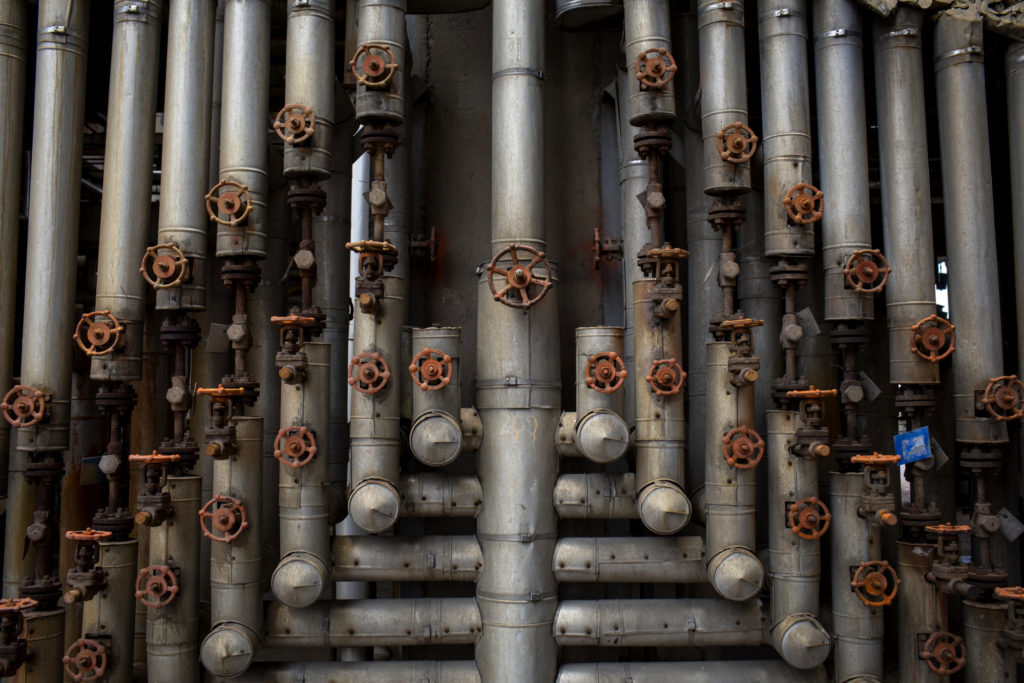
Oil extended gains above $77 a barrel as a conflict between Israel and Iran ratcheted up, increasing prospects for tighter global supply after the U.S. renewed sanctions on OPEC’s third-largest producer.
Futures in New York added 0.8 percent after surging to the highest level since November 2014. Israel said Iran fired missiles at its soldiers in the Golan Heights and retaliated by striking Iranian targets in Syria after weeks of building tensions. Prices jumped 3 percent Wednesday after President Donald Trump said the U.S. would scrap a 2015 nuclear deal between Iran and world powers that had eased restrictions on the Islamic Republic’s crude exports.
Oil’s recent rally has been propelled by Trump’s decision to reinstate sanctions on Iran and on simmering geopolitical tensions surrounding the energy-rich Middle East. While investors are still assessing the full impact of the U.S. withdrawal from the nuclear accord, UBS Group AG said the sanctions could cut Iran’s oil exports by as much as 500,000 barrels a day in the next six months. Saudi Arabia signaled it could make up lost supplies, and Goldman Sachs Group Inc. said there’s a chance prices may exceed its forecast.
“Oil’s always prone to rise on geopolitical tensions and the ongoing conflict between Iran and Israel is not something that can be resolved in the short-term,” Will Yun, a commodities analyst at Hyundai Futures Corp., said by phone in Seoul. “While prices are currently rising on Trump’s decision to reimpose sanctions on Iran, we may see some limitations to the rally as any lost volumes can be supplied by other producing nations.”
West Texas Intermediate crude for June delivery rose as much as 61 cents to $71.75 a barrel on the New York Mercantile Exchange and traded at $71.74 at 1:21 p.m. in Seoul. Prices gained $2.08 to close at $71.14 on Wednesday, the highest settlement since November 2014. Total volume traded was about 9 percent above the 100-day average.
Brent for July settlement added as much as 0.8 percent to $77.82 a barrel on the London-based ICE Futures Europe exchange before trading at $77.81. Prices on Wednesday climbed 3.2 percent to $77.21. The global benchmark crude traded at a $6.15 premium to July WTI.
Futures for September delivery on the Shanghai International Energy Exchange rose 2.1 percent to 475.1 yuan a barrel, climbing for a fourth day. That’s the longest rising streak in a month.
Iran’s Quds Force, which is fighting in Syria alongside the government, targeted Israeli Defense Force positions with 20 rockets, according to a Twitter post by IDF spokesman Jonathan Conricus. While he said several of the rockets were intercepted and there were no casualties, the Israeli media called the confrontation as the biggest direct military clash between the two rivals.
“Oil prices are rising higher on speculation the conflict between Iran and Israel could eventually threaten supply across the Middle East,” Takayuki Nogami, chief economist at state-backed Japan Oil, Gas & Metals National Corp., said by phone from Tokyo. “If the situation in the Middle East becomes more unstable, the market will become more concerned about how oil supply will be disrupted.”
In the U.S., the Energy Information Administration reported nationwide crude inventories slid 2.2 million barrels last week, in contrast to a forecast for a 1 million-barrel gain in a Bloomberg survey. The crude draw was largely due to a decline in imports, which fell by the most since November 2016. Domestic gasoline and distillate stockpiles also shrunk.
“Distillate and gasoline stockpiles have been shrinking in America, suggesting that fuel demand is healthy, which will ultimately lead to a draw in overall crude inventories,” Ahn Yea Ha, a commodities analyst at Kiwoom Securities Co., said by phone from Seoul.Oil-market news:
Gasoline futures rose 0.5 percent to $2.1772 a gallon after climbing 2.7 percent Wednesday, the biggest gain in a month. European oil refiners and trading houses began preparing to cut purchases of Iranian crude after Washington imposed harsher sanctions on shipments from Tehran than many in the energy industry had expected.